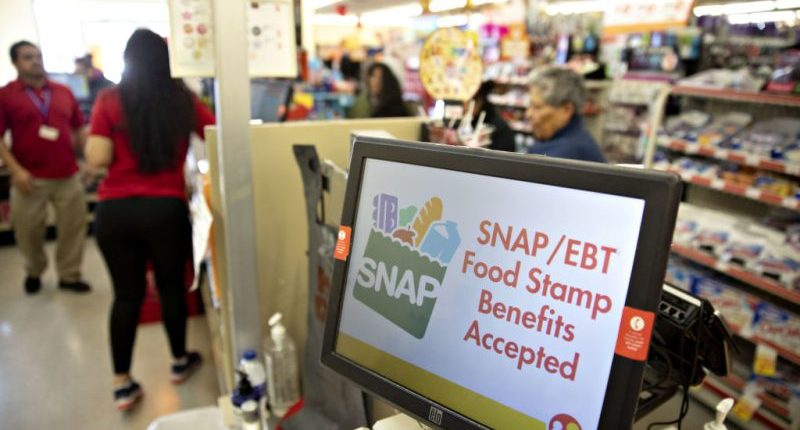Share this @internewscast.com

(NEXSTAR) – Congressional Republicans are attempting to advance an extensive piece of legislation, spanning 1,116 pages, known as the “One Big Beautiful Bill Act.” This proposal encompasses revisions ranging from tax systems and student loan policies to Medicaid and deportation processes. It also introduces a “Golden Dome” initiative for defense and proposes federal reductions to the Supplemental Nutrition Assistance Program (SNAP).
SNAP, formerly referred to as the Food Stamp Program, is designed to assist individuals and families with low incomes by providing them with financial aid for purchasing groceries.
What changes to SNAP are in the ‘big, beautiful bill?’
The bill would first and foremost cut federal funding for SNAP by about $267 billion over a 10 year-period.
The proposed changes would require states to cover the difference, contributing 5% to the benefit costs and a significant portion, 75%, of SNAP’s administrative expenses. Currently, states are not responsible for any of the benefit costs and only cover half of the administration expenses.
Another provision would make states pay even more of the benefit costs if their payment error rate tops 6%. There’s a sliding scale that would require states with higher error rates to pay between 15% and 25% of the benefit costs. While supporters say it incentivizes lower error rates, critics argue it would lead to states cutting benefits for those in need.
Under the new plan, more people would also be required to prove they are working, pursuing an education or are in a training program to qualify for food assistance. Currently, able-bodied adults between the ages of 18 and 54 have to meet these work requirements to get food stamps for more than three months. Under the bill, those requirements would extend up to age 64.
There are exceptions to the work requirements, a USDA spokesperson previously told Nexstar. Homeless people, veterans, or youth ages 18 to 24 who aged out of foster care are all exempt from these requirements. People who cannot work due to a physical or mental limitation, are pregnant, or have a child 18 or younger living in their home are also exempt.
This bill would change that last exemption. Only adults caring for a dependent child under the age of 7 would be exempt from the SNAP work requirements.
What’s next for the One Big Beautiful Bill Act?
The House Rules Committee discussed the bill early Wednesday as Trump was meeting with House Republicans to convince holdouts to vote in favor of it. If it did pass the House, it would face even more hurdles in the Senate.
The act’s name is a nod to President Donald Trump, who described the legislation as a “big, beautiful bill.” Democrats have described it quite differently. House Democratic leader Hakeem Jeffries called it an “extreme and toxic bill.”
There is a lot more proposed in the bill’s 1,116 pages. The Hill previously broke down some of the major pieces of the plan here, but several elements could change as the bill works its way through Congress.
The Associated Press contributed to this report.











